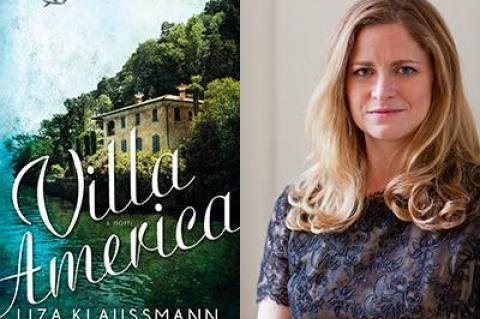“I liked it and I didn’t.” What better words to begin this review than Ernest Hemingway’s first words in his letter to F. Scott Fitzgerald after reading “Tender Is the Night,” Fitzgerald’s novel in which he muddled my grandparents, Sara and Gerald Murphy, with himself and Zelda.
Books
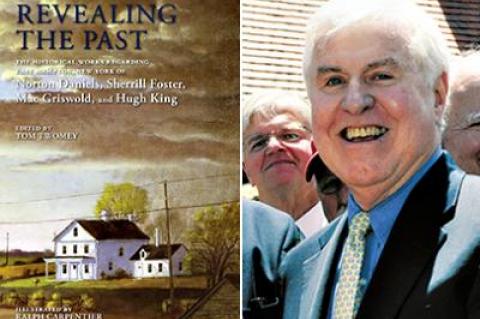 A History Not So Ordinary
A History Not So OrdinaryThis sixth book on East Hampton history edited by the late Tom Twomey is a worthy addition to a series that began with “Awakening the Past: The East Hampton 350th Anniversary Lecture Series, 1998.” Subsequent volumes reprinted writings by Henry Hedges and Jeannette Edwards Rattray, among others, with one book devoted to articles on Gardiner’s Island and Montauk. The six anthologies constitute an important part of Mr. Twomey’s significant legacy of preserving East Hampton history and making out-of-print accounts accessible.
Goldberger on Gehry
If you can name an architecture critic more eminent than Paul Goldberger, mail your entry to this paper’s venerable Main Street office and you could receive a Star baseball cap, depending on our whim.
Fall is here and the roads are clear. Maybe it’s time to take a straight midweek shot down the highway to the graduate school ghost of Southampton College, the geographical mouthful Stony Brook Southampton, to give a listen to two important American novelists, Jane Hamilton and Ann Packer, as they open the off-season’s Writers Speak series.
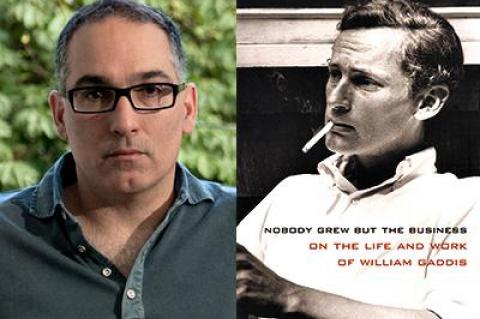 Mr. Inscrutable
Mr. InscrutableJust imagine for a moment that you have the most useless job in the world: to set up a list of painful and impossible theses for literary critics to explore. The top of your torture list of prospective titles might read a lot like Joseph Tabbi’s new book, “Nobody Grew but the Business: On the Life and Work of William Gaddis.”
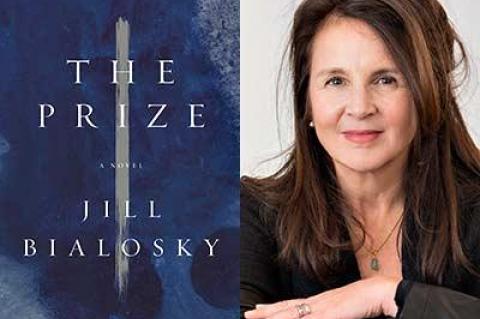 In Search of the New
In Search of the NewIn “The Prize,” Jill Bialosky’s absorbing new novel, the focus is on an invented protagonist, Edward Darby, a dealer in contemporary art, a middleman devoted to the work he represents. Although the New York City gallery he runs, but doesn’t own, must turn a profit to survive, Edward’s commitment is more idealistic than materialistic.
Walter Donway lives in East Hampton. “My House” is included in the “Long Island Sounds” poetry anthology for 2015, published by the North Sea Poetry Scene. Its release will be celebrated with a reading on Wednesday at 6:30 p.m. at Briarcliffe College’s Patchogue campus.
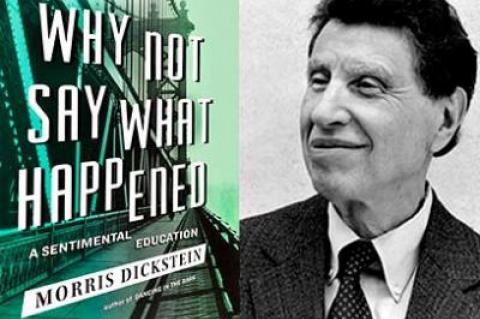 The Happy Intellectual
The Happy IntellectualIn this beautifully wrought, rather romantic memoir, the renowned literary critic Morris Dickstein recounts the tale of a quintessential American journey. It is a story that begins in a loving, happy, but strictly monitored Orthodox Jewish household on the Lower East Side of Manhattan.
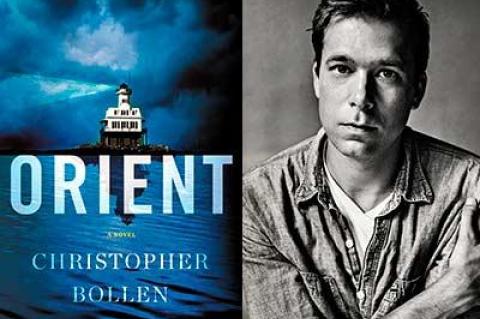 Darkness Out East
Darkness Out EastGeography matters. An author chooses to weave a tale of mayhem, suspense, and fear. What better setting than a remote hamlet, surrounded mostly by water, where there is a lot of open land and where it grows very dark at night?
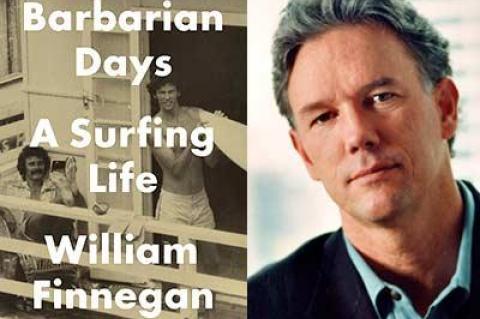 A Surfing Life
A Surfing LifeWith notable exceptions, most surf writing and storytelling has appealed exclusively to surfers. The sometimes kitschy insider stuff, the you-wish-you-here-but-you’re-not magazine articles, even the iconic “Endless Summer,” most of it is of limited interest beyond the growing tribe.
Surfing journalism and literature are pretty thin. But there are notable exceptions: A Patagonia-financed film, “The Fisherman’s Son,” is a powerful story of how surfing empowered a Chilean environmental crusader.
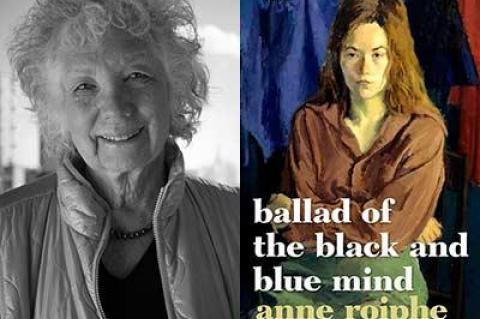 The Lady Vanishes
The Lady VanishesIt is a quintessentially New York novel (and shameless urban chauvinist that I am, I really mean a Manhattan novel in much the same way that Woody Allen’s “Manhattan” was a Manhattan movie). It is Jewish, intellectual, Upper West Side, arty, upper middle class, Hamptons-y, and deeply concerned with psychoanalysis.
 Tales of an Unsung Borough
Tales of an Unsung BoroughThe assignment to review Arlene Alda’s “Just Kids From the Bronx: Telling It The Way It Was” left me a bit cranky. “Isn’t she a children’s book author?” I thought. After a quick look at her Wikipedia page, I was reminded that Ms. Alda is the author of 15 children’s books, many of them prize winners and one a best seller.
Hunt & Light, a poetry publisher out of East Hampton and Brooklyn, is dedicated to advancing the work of young poets. On Saturday at 5 p.m., this will be manifested in the appearance of one Esther Mathieu at Harbor Books, the still-new shop on Main Street in Sag Harbor.
Philip Schultz, a Pulitzer Prize-winning poet who lives in East Hampton, will read from new work at Canio’s Books in Sag Harbor on Saturday at 5 p.m. with Grace Schulman of Springs, poet and professor of English at Baruch College. “Aardvarks” previously appeared in Slate.
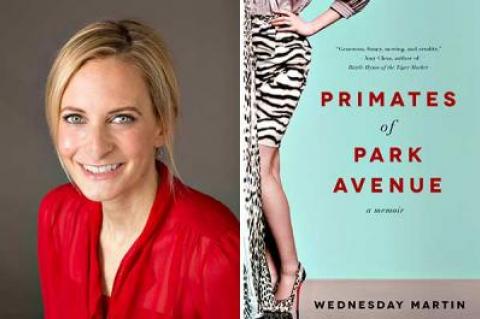 The Misery Sessions
The Misery SessionsOur daughter had just turned 3 when we applied for admission to the nursery school of the Lycee Francais de New York. At the time, the Lycee occupied one of the Upper East Side’s most impressive buildings, a Beaux Arts mansion on East 72nd Street just off Fifth.
 High Tech and High Touch
High Tech and High TouchWhen my 25-year-old grandson Jascha — an Elon Musk admirer and entrepreneur himself (The Dream Lab) — visited us in East Hampton recently, he was completely engaged in reading Ashlee Vance’s smart biography (Ecco, $28.99). He hoped to see at least one Tesla, and then on his last day here, getting on the Ambassador bus to leave, he spotted two!
 Adventures in Ecology
Adventures in EcologyIn “The End of the Rainy Season: Discovering My Family’s Hidden Past in Brazil,” Marian Lindberg explores questions that all children eventually ask: How reliable are our parents? How sound is their version of reality? Can I trust their stories about the past?
Poetry fans are in for a treat, as Grace Schulman and Kimiko Hahn are the next readers in this summer’s Poetry Marathon, held every Sunday at 5 p.m. at the East Hampton Town Marine Museum on Bluff Road in Amagansett.
At 40 years old this year, it’s fair to say “Pushcart Prize: Best of the Small Presses” has matured into a powerful voice in American literature.
Carl Safina will speak twice in short order — first at the ever-funky, ever-indie Canio’s Books in Sag Harbor and then at the Authors After Hours series at the Amagansett Library.
 The Inner Lives of Animals
The Inner Lives of AnimalsOver the centuries, most scientists believed that nonhuman animals lacked thoughts and emotions. Scientists assumed that other species just automatically react to stimuli — unlike humans, who make plans and experience feelings such as sorrow and joy.
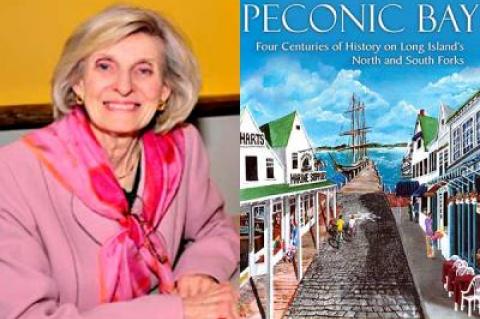 History as a Beach Read
History as a Beach ReadWriting a history book about four centuries of Long Island’s East End is rather like squeezing 12 adult humans into the trunk of a Maserati — it is going to be a tight fit. Marilyn E. Weigold, a professor who teaches at Pace University in the department of economics, history, and political science, has chosen to let the blue waters of Peconic Bay form the matrix for an engrossing collage of folklore and facts that tells an abbreviated but well-curated episodic history of Long Island’s eastern forks.
Sunday marks the return of the venerable Poetry Marathon in Amagansett. This year’s series of readings starts at 5 p.m. that day with Joanne Pilgrim, an associate editor at The Star, reading from her verse, accompanied by Jan Grossman, a past fiction and poetry reviewer for the Rockefeller Foundation who has had poems published in American Arts Quarterly, among other journals.
To hail the release of the summer/fall issue of The Southampton Review, the Public Radio International program “Selected Shorts” will hit the campus of Stony Brook Southampton on July 18.

